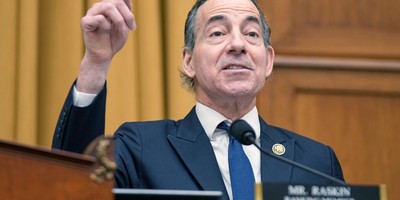The Edsel was one of the biggest flops in the history of car making. Introduced with great fanfare by Ford in 1958, it had terrible sales and was junked after only three years. But if Congress had been running Ford, the Edsel would still be on the market.
That became clear last week, when Democrats as well as Republicans expressed horror at the notion that bankrupt companies with plummeting sales would need fewer retail sales outlets. At a Senate Commerce Committee hearing, Chairman Jay Rockefeller, D-W.Va., led the way, asserting, "I honestly don't believe that companies should be allowed to take taxpayer funds for a bailout and then leave it to local dealers and their customers to fend for themselves."
Supporters of free markets can be grateful to Rockefeller for showing one more reason government shouldn't rescue unsuccessful companies. As it happens, taxpayers are less likely to get their money back if the automakers are barred from paring dealerships. Protecting those dealers merely means putting someone else at risk, and that someone has been sleeping in your bed.
The Constitution guarantees West Virginia two senators, and Rockefeller seems to think it also guarantees the state a fixed supply of car sellers. "Chrysler is eliminating 40 percent of its dealerships in my state," he fumed, "and I have heard that GM will eliminate more than 30 percent." This development raises the ghastly prospect that "some consumers in West Virginia will have to travel much farther distances to get their cars serviced under warranty."
Dealers were on hand to join the chorus. "To be arbitrarily closed with no compensation is wasteful and devastating," said Russell Whatley, owner of a Chrysler outlet in Mineral Wells, Texas.
But unwanted events are one of the hazards of operating in a modern economy that is subject not only to changing consumer preferences but occasional downturns. Absent the Obama administration's rash intervention, Chrysler might well have gone out of business -- in which case not only these dealers but all the rest would be left in the lurch.
Recommended

Chapter 11 bankruptcy is not supposed to be pleasant for anyone. It's supposed to involve painful and expensive sacrifices that are slightly less dire than the consequences of liquidation.
It should come as no surprise that as these corporations find fewer and fewer buyers for their products, they need fewer car lots. Today, Chrysler sells about half as many vehicles in this country as Toyota, but it has more than twice as many dealers.
Does Rockefeller get complaints from Toyota owners about the grueling trips to get service? Chrysler, by the way, admits that the average customer's drive to the dealer will increase -- from 6.67 miles to 7.09 miles.
But once senators get the chance to micromanage business decisions, they are reluctant to pass it up. Sen. Kay Bailey Hutchison, R-Texas, proved that meddlesome government is not a Democratic monopoly. She proposed that Chrysler be forced to give its dealers 60 days to unwind their operations instead of less than a month, as the company decided.
Hutchison fondly recalled that when she was selling ads for the high school football program in her teen years, a car dealer provided the school's first sale. Retailers should be accommodated, she insists, because they have "nothing to do with the cost of the company."
But CEO Fritz Henderson, whose job, unlike hers, actually depends on knowledge of his company's cost structure, said the support GM provides to dealers amounts to about $1,000 per vehicle -- a figure that would be lower with a downsized network. Cost aside, the companies say an excess of dealers means some can't make enough money to serve customers well, damaging their brands.
While lamenting the fate of the unfortunate dealerships that will be dropped, the senators overlooked another group that will be deeply affected by the closures -- the remaining dealers. They can expect to capture more sales, boost their profits and even provide new jobs in sales and service.
One Detroit-area Chrysler dealer told a local newspaper that he plans to add at least 30 employees to his staff of 85. When that happens, don't expect a Senate hearing for them to express their gratitude.
Now that Washington has intervened to rescue these corporations, it can easily justify reviewing and even reversing their business decisions. But, as the senators proved, having the excuse is not the same as having the competence.

























Join the conversation as a VIP Member